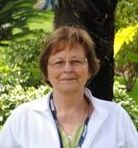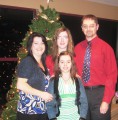 A Surprising Recipe for Parish Renewal
A Surprising Recipe for Parish Renewal
The Church’s prayer in every generation is always for the people of God to be renewed. When our hearts and minds are renewed it opens us up to the unifying love that is Christ, brings the desire to serve others, and offers peace and hope to our families, communities, and to the world. This, of course, is the Church’s mission and raison d’etre.
In order for the local church to be effective in its mission in every generation, its pastors need to be intentional and systematic in guiding its people—and ultimately its whole region. The people of God need to be loved, cared for, and shown compassion and mercy. And the people of God also need to be well instructed in the Christian life.
In our Canadian context we are living in a predominantly un-churched society, where perhaps only 10 to 15% of the population is affiliated with organized religion. Moreover, the influence of our secular society on that 15% is substantial. Recognizing the church’s mission mandate, and well aware of this societal conditioning, in 1999 the Anglican Parish of the Resurrection in South River, Newfoundland, began a process of renewal, educating our Christian community and re-creating ourselves.
Here is our story.
In the fall of 1999, the parish was a four point charge with small, diminishing, and tired congregations. It was evident that we would have to become one congregation, with all the heartache that would entail, or we would die. This is how we managed, with the grace of God, to recreate ourselves into one vibrant congregation.
We began experimenting by pooling all the human resources from the four congregations in such a way that we would function administratively, liturgically and catechetically as a one point parish. Liturgically, we had one main service on Sunday mornings that moved each week around the parish. The music was more contemporary, and the children’s church was worked into the liturgy. Those who appreciated the contemporary worship and children’s church would “move” to a different building each Sunday morning. Administratively, all four vestries met and worked as one body responsible for the entire parish; and a single financial team was put into place to manage all parish finances.
These “experimental” changes made the running of the parish more efficient, and the liturgy more life giving. But the factor that gave the process deeper roots and the desire to persevere was the intentional, systematic, and ongoing catechetical evangelization of the congregation. If the parish was going to survive, to be renewed and to be made effective in ministry and mission, it was evident that we needed to challenge those already in the pews to learn more about their faith, and to deepen their spiritual practice. In other words, we took as our very first mission mandate to evangelize and educate those already in the pew.
So, at the same time that the administrative and liturgical changes were happening, we introduced the Alpha Course to the parish. All four vestries and others from the congregations were challenged to take part in that first Alpha course. And, thank the Lord, most vestry members responded. This first Alpha was life changing for a number of those who participated, not only by deepening their experience of God, but also by building new relationships across the boundaries of the four congregations. This was a major factor in bonding together in faith and friendship those who hardly knew one before.
The Alpha Course in the fall of 1999 was only the beginning of the catechetical evangelization of the congregation. A Sunday Breakfast Bible study and a weeknight Bible study began right after that first Alpha. In addition, we dedicated two nights each week to Christian Education. Thursday nights was set aside for Alpha, and Monday nights for other Christian education opportunities such as After Alpha, various other programs, and guest teachers who would come to speak on selected themes.
Gladys Harvey writes: Twelve years ago, I was a churchgoer but not acommitted Christian. I decided to do an Alpha course which was offered by our then new priest. That course changed my life and set my feet firmly on a faith journey which has led to a deep involvement with my faith community and with Christian adult education. Alpha gave me the nuts and bolts to begin with, and Lectio divina gave me the discipline of prayer. Christian education , in addition to theology based sermons from our priest, has helped to build a faith COMMUNITY where formerly there were four dying congregations.
acommitted Christian. I decided to do an Alpha course which was offered by our then new priest. That course changed my life and set my feet firmly on a faith journey which has led to a deep involvement with my faith community and with Christian adult education. Alpha gave me the nuts and bolts to begin with, and Lectio divina gave me the discipline of prayer. Christian education , in addition to theology based sermons from our priest, has helped to build a faith COMMUNITY where formerly there were four dying congregations.
As the faith of the congregation was deepening and maturing, many were being prepared to make the hard decisions to become constitutionally a single congregation with one vestry, to sell our old buildings, and to construct a new House for the Church.
During this interim between the old order (with four buildings) and the move to the new House for the Church, the Alpha and other various courses, including Bible studies, continued to renew and transform our people. The Sunday homilies, strategy and visioning workshops, and special lectures also became very important in educating the congregation about the liturgical principles that our new Oratory would embody, and the ideas of hospitality that would direct our new “Emmaus Café.”
Winston Bishop writes: In September 2006 my family and I decided to give church a chance again and take in a service at the newly opened Parish of the Resurrection. We were a family in need of something meaningful to help fill the emptiness that was within us. We received a warm welcome and after several services, an invitation was extended to us to attend Alpha which soon became the single most important event in our family’s lives. Alpha saved us as a family; it introduced us to Jesus and gave us a place to belong, praise God!
give church a chance again and take in a service at the newly opened Parish of the Resurrection. We were a family in need of something meaningful to help fill the emptiness that was within us. We received a warm welcome and after several services, an invitation was extended to us to attend Alpha which soon became the single most important event in our family’s lives. Alpha saved us as a family; it introduced us to Jesus and gave us a place to belong, praise God!
After moving into our new community home in 2006, we added to our Christian Education menu a Wednesday afternoon Spiritual Reading Group. This group meets after the Wednesday mass and lunch, and has read and discussed books including such classics as Augustine’s Confessions and The Autobiography of St. Teresa of Avila, and popular works such as The Shack. During the fall of 2010, the Spiritual Reading Group will be reading and reflecting on Three Cups of Tea, the popular story of one man’s encounter with the Pakistani tribes high in the Himalayas, and his response to their great kindness to him.
Another strand of catechesis we’ve been developing over the last four years has been outreach to the wider community: courses on marriage, parenting, bereavement, divorce and separation courses (using resources available through Alpha Canada) and relevant support groups. We’ve moved into this area for a number of reasons: we want to be seen as a resource to our region for people who are not members of our parish; we discerned a need in this area for our region; and there is potential that when folk participate in the outreach programs that we run out of our café, they may decide to explore faith issues with us as a parish.
Finally, for those interested in learning the disciplines of meditation and contemplation, and early in our process of recreating our community, we introduced the practice of Lectio Divina, which has become an important aspect of our catechetical evangelization. This has developed into a regular corporate practice on Sunday evenings, and, when we moved into our new House for the Church, on Wednesday mornings also.
 Debbie Kaba writes: When I started attending Parish of the Resurrection at thebeginning of Advent 2007, I was eager to learn meditation and contemplation and have found them very helpful in my Christian journey. It helps me quiet my mind and emotions and feel the love of God no matter what situation I’m in. Stuck in traffic? I can practice silent prayer until the frustration abates. It has also developed a deep love and connectedness to others of the parish who corporately practice this prayer. The self-discipline it takes to grow in this discipline has been beneficial, too.
Debbie Kaba writes: When I started attending Parish of the Resurrection at thebeginning of Advent 2007, I was eager to learn meditation and contemplation and have found them very helpful in my Christian journey. It helps me quiet my mind and emotions and feel the love of God no matter what situation I’m in. Stuck in traffic? I can practice silent prayer until the frustration abates. It has also developed a deep love and connectedness to others of the parish who corporately practice this prayer. The self-discipline it takes to grow in this discipline has been beneficial, too.
Our schedule for catechetical evangelization in the fall of 2010 is full: the new seven week Alpha course; a Bereavement Course; the Spiritual Reading Group discussing Three Cups of Tea; Sunday morning and Tuesday evening Bible studies; corporate meditation on Sundays and Wednesdays; Sunday and Wednesday Mass; and a Parenting Course and a Divorce and Separation Course on request. The winter schedule will be similar, except that we will add the Marriage Course.
As we have sought to develop a mission focused parish, we have discovered that ongoing, intentional, and planned “catechetical evangelization” needs to be a regular component of congregational life. The results, by the grace of God, can be remarkable.

